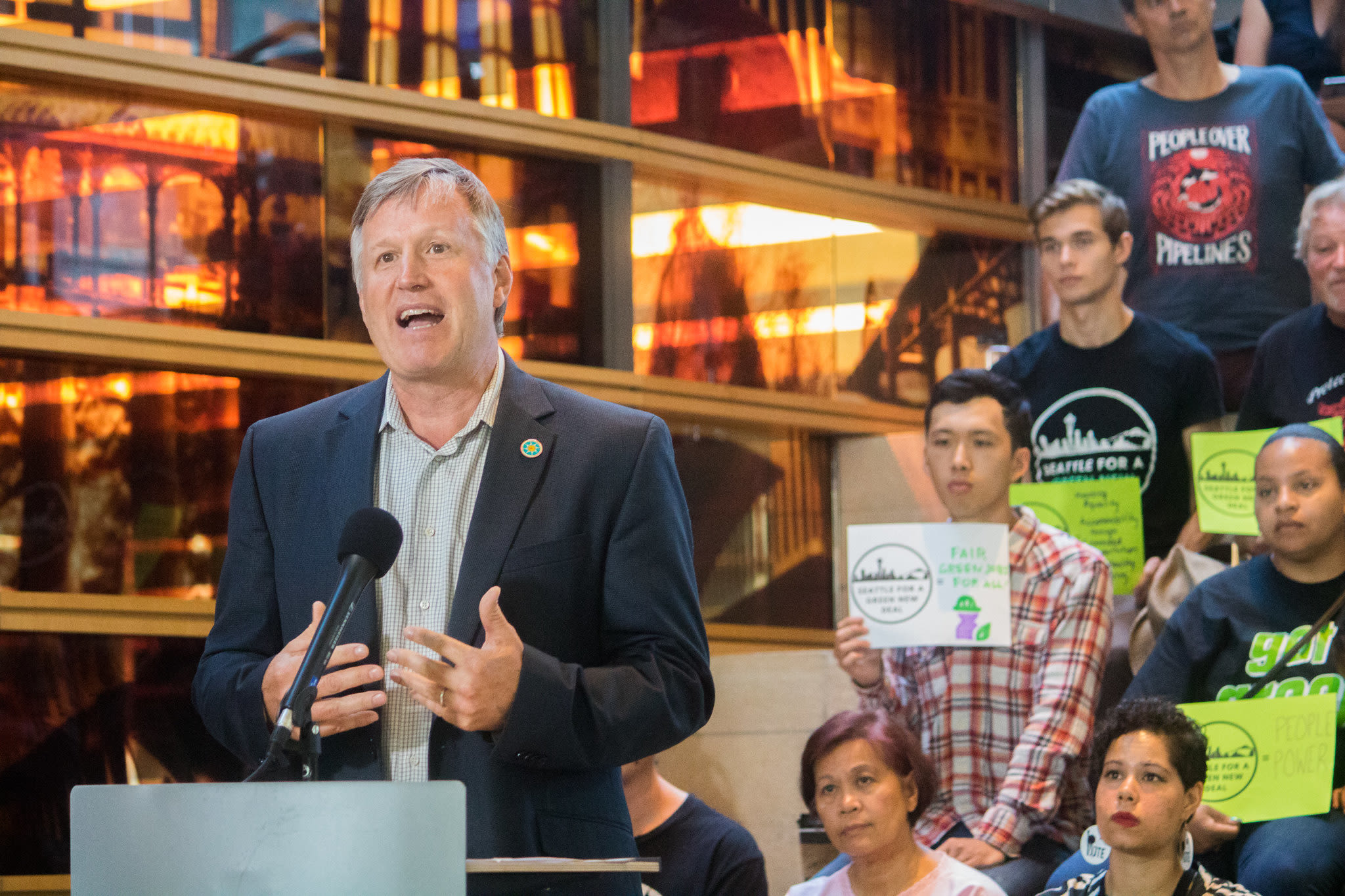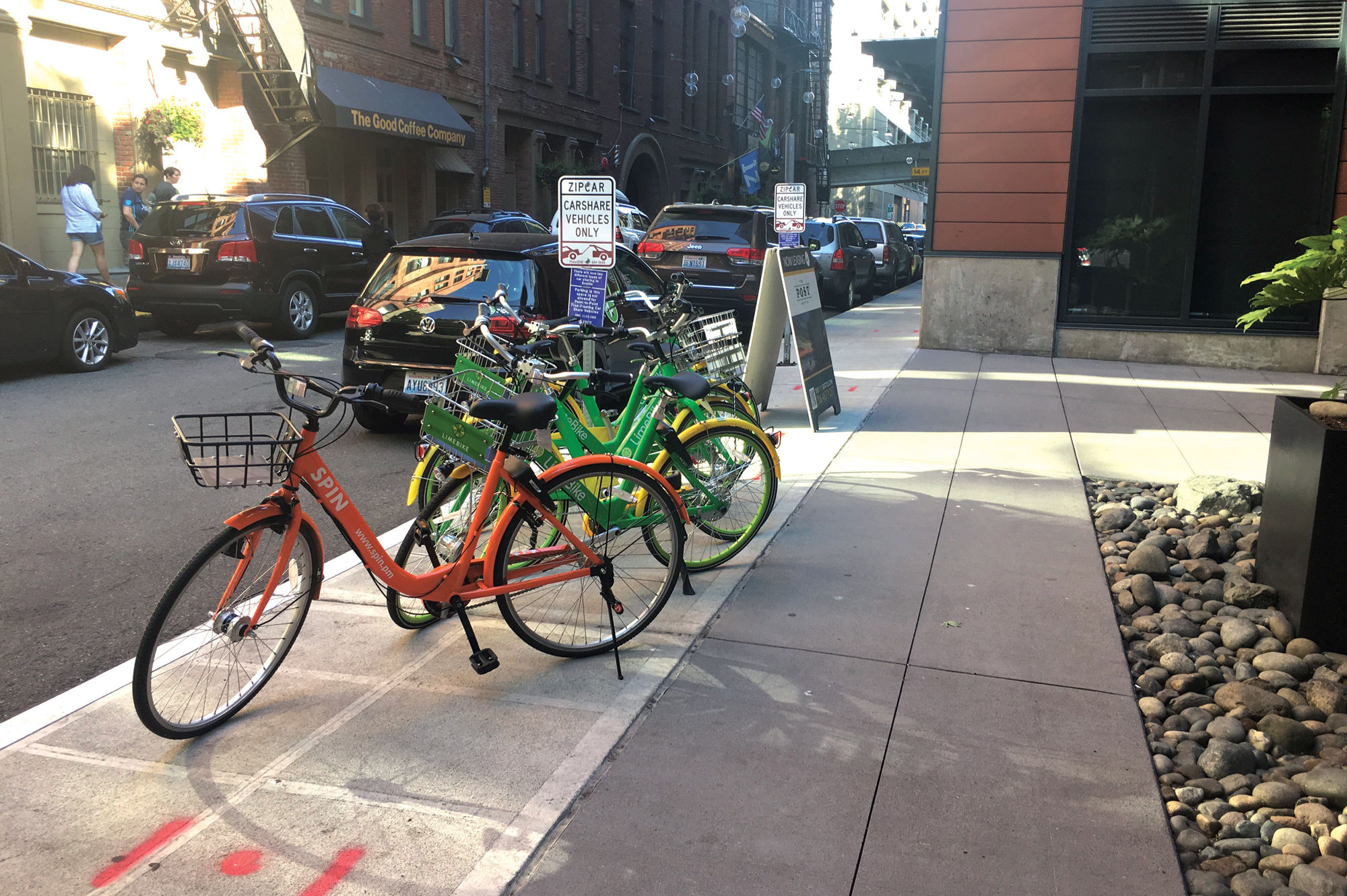City Hall
Can the Council Stop a Tunnel Vote Over McGinn's Objection? It's a Gray Area.
As we noted in Morning Fizz, the city council is backing away from the idea of putting an emergency clause on legislation adopting an agreement on the deep-bore tunnel between the city and the state. An emergency declaration would thwart a referendum on the agreement that's currently being considered by environmental and social-justice groups.
(Background: Tunnel opponents, including Mayor Mike McGinn, want the agreement to include a stipulation that the state can't start work on the deep-bore tunnel unless the state legislature removes a clause in state law putting "Seattle area property owners who benefit" from the tunnel on the hook for cost overruns. Tunnel proponents say that language is unenforceable).
According to one read of the city charter the city council can't override a mayoral veto of emergency legislation. The charter says an ordinance designated an emergency:
That's seems pretty clear: The mayor has to sign emergency ordinances for them to take effect.
Right?
Well, that's unclear. A survey of council "emergency" ordinances over the years shows that many such ordinances include the following standard language, indicating that the council can, in fact, pass emergency ordinances even if the mayor does not approve.
City attorney Pete Holmes has not returned a call for comment, and a spokesman for Mayor Mike McGinn has not responded to a call and an email. However, council staffers say the discrepancy between the charter and the standard language in city laws indicates a "gray area" of the law that's open to interpretation. The city council has only overturned mayoral vetoes a handful of times, and council staffers can't recall the council ever overturning a veto of emergency legislation.
Another gray area: A 1915 ballot measure, which the Stranger reported on this morning, that would have amended the charter to allow the council to override mayoral vetoes of emergency legislation. It's unclear that the intent of the voters 95 years ago was to eliminate all mayoral vetoes of emergency bills, or just emergency spending.
(Background: Tunnel opponents, including Mayor Mike McGinn, want the agreement to include a stipulation that the state can't start work on the deep-bore tunnel unless the state legislature removes a clause in state law putting "Seattle area property owners who benefit" from the tunnel on the hook for cost overruns. Tunnel proponents say that language is unenforceable).
According to one read of the city charter the city council can't override a mayoral veto of emergency legislation. The charter says an ordinance designated an emergency:
shall not become an ordinance unless on its final passage by the City Council at least three-fourths (3/4) of all the members vote in its favor ... and it shall have been approved by the Mayor whereupon it shall be of full force and effect.
That's seems pretty clear: The mayor has to sign emergency ordinances for them to take effect.
Right?
Well, that's unclear. A survey of council "emergency" ordinances over the years shows that many such ordinances include the following standard language, indicating that the council can, in fact, pass emergency ordinances even if the mayor does not approve.
This ordinance shall take effect and be in force immediately upon its approval by the Mayor or, if not approved and returned by the Mayor within 10 days after presentation, then on the 11th day after its presentation to the Mayor or, if vetoed by the Mayor, then immediately after its passage over his veto.
City attorney Pete Holmes has not returned a call for comment, and a spokesman for Mayor Mike McGinn has not responded to a call and an email. However, council staffers say the discrepancy between the charter and the standard language in city laws indicates a "gray area" of the law that's open to interpretation. The city council has only overturned mayoral vetoes a handful of times, and council staffers can't recall the council ever overturning a veto of emergency legislation.
Another gray area: A 1915 ballot measure, which the Stranger reported on this morning, that would have amended the charter to allow the council to override mayoral vetoes of emergency legislation. It's unclear that the intent of the voters 95 years ago was to eliminate all mayoral vetoes of emergency bills, or just emergency spending.




